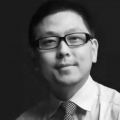
When men decided to abandon wilderness and its laws, they built the city, a place where they could live inside an environment they designed and follow the rules they decided to adopt. The urban space became the place where a new type of human interactions happened: those with the built environment. Over the millennia, the way men interact with cities has changed just a little, with changes fostered in many cases by technological advancements. Today we assist to the phenomena of ever-connected-citizens, capable of reaching all the information they want at any time. They are able to interact with the city, in the form of city services provided by the local governments or companies. It’s a “guided” interaction, it reflects a plan that will only lead to certain choices decided in advance with precise marketing or political planning.
What if the built environment was designed and made with the ability to use technology to interact with people? Is a building just a bunch of bricks, steel and glass? Or can a building be able to communicate with people? Deliver data about its internal temperature, humidity level, power consumption, ask for data from the visitor or from a connected network? Maybe learn from the interactions established over time and change its behavior. Make choices. What if the whole city could interact with its citizens without human control, citizen could establish a bi-directional kind of interaction with their “semi-sentient” city?
These premises shape the orientation we want to lay our study and research path on. The organizing team is part of Tongji University Design and Innovation College and Fablab O Shanghai; both institutions stands on solid architectural design foundations but aim to explore new and innovative patterns for the city of the future, which Shanghai as an ecosystem is now more than ever promoting.
We will explore how to collect, decode and use data from various sources, work with elements of parametric and algorithmic analysis to translate data into design criteria and we will use digital fabrication tools and techniques to create an architectural scale interaction installation that will be exhibited and tested at the WIEE Expo in Tongji Jiading Campus.
IAAC Global Summer School is a full-time two weeks course, 2-14 July 2018, that provides both practical and theoretical knowledge. The program is led by expert tutors, combined with lectures by renowned professionals and academics relevant to the topics to be treated during the course. These will be broadcasted in the different node-cities, all globally connected. Participants will join a global agenda and an international laboratory at their disposal to test their design hypothesis, understanding how design conclusions derived locally can be tested and evolved globally in the different cities where other teams reside.
The organizing team in Shanghai is part of Tongji University Design and Innovation College and Fablab O Shanghai. The Summer School will be held during the WIEE18, World Innovation and Entrepreneurship Expo 2018 that will also host the Innovation and Entrepreneurship Summer Carnival, from June to September.
Activities include 2018 SLUSH Shanghai, 2018 Shanghai Maker Faire, 2018 China-US Youth Maker Competition and Forum, 2018 Cross-Strait Youth Maker Competition and Forum, 2018 Shanghai STEAM Innovation & Entrepreneurship Forum, etc. During the summer vacation, WIEE will cooperate with partners from home and abroad and attract students from Chinese and foreign primary schools, high schools and colleges. Integrated with educations, scientific researches, cultural exhibitions and Makers’ activities, a co-innovating and sharing community will be created.
The students will be granted free accommodation for the entire period of the program with access to facilities and the temporary Fablab that will be installed on site.
The final project will be exhibited during the WIEExpo and will be visited by thousands of visitors.

Sohith is an architectural designer with a broad range of experience in architecture, urbanism and interior design. He is a founding partner of Design SPI, a practice based out New York City. He directs the creative vision of Design SPI, which attempts to bring together research and new design techniques through a lens of elegance.
After working in New York for a number of years, Sohith attended Columbia University’s Graduate School of Architecture, Planning, and Preservation where he received a Masters degree in Advanced Architectural Design. There he studied computational design and architectural history and theory. Prior to Columbia, Sohith attended Ball State University in Indiana, USA where he received his Bachelor of Architecture and Bachelor of Science in Environmental design.
With a range of experience in project delivery of complex architectural designs in several countries, including USA, China, India, and Saudi Arabia, Sohith has worked on projects such as the Harbin Labor Recreation Center for MAD Architects, and the KAFD Iconic Metro Station for Zaha Hadid Architects as a project manager and lead designer. Having produced design-work within a variety of project types such as urban masterplanning, residential complexes, office towers, museums, and transport infrastructure, he explores a diversity of project types and scales for architectural innovation opportunities.
Sohith is interested in furthering design utilizing computational design techniques and realizing it through new means of fabrication and installation.

Associate Professor, School of D&I, Tongji University; Deputy Director of Environmental Design; Founder of FABO | Shanghai, FABO | Playground.
He earned a dual master’s degree in Architecture Design from Iowa University and Harvard University. He has been the creative design director of Atelier-iform. Since 2013, he has been the Fablab director of the School of Design and Innovation at Tongji University. He founded the Fablab O brand.
??????????????????;?????????;FABO|??????? FABO PlayGround|??“??”?????; ??????????????????????????????????? Atelier-iform ???? ??? ? 2013 ???????????????? Fablab ??,??? Fablab O ???

After graduation at Roma Tre University’s School of Architecture, Saverio Silli worked as an architect, while pursuing the academic career as a lecturer in his alma mater, for the classes “Visual Communication Design” and “Graphic Representation Methods”.
He has been an active member of Italian’s maker community since 2012, giving birth to the first two Fablabs in Rome. In 2015 he moved to Milan to enroll in the Fab Academy course directed by Neil Gershenfeld, director of MIT’s Center for Bits and Atoms.
After graduation as a Digital Fabrication Specialist he became the local instructor for Fab Academy in Fablab WOMA in Paris, France, and since December 2016 he is the Director of Courses at Fablab O Shanghai and Assistant Research Fellow in Tongji University’s College of Design and Innovation in Shanghai, working as an instructor and developing new classes for the STEAM education.
Saverio Silli????????????????????????Roma Tre?????????? ?“??????”?“?????”??? ?2012??????????????????????????????Fablabs??2015?? ??????????????????????Neil Gershenfeld???Fab????? ???????????????????Fablab WOMA??Fab????????????? ???????????Fablab O???????????????????????????? ?STEAM????????
????????????????????????????????????????fablab ????????

J.travis Russett, founder of be?stia—a laboratory for symbiotic life-machine exploration, imbues his works with an erotics of wildness, the spirit of humanity, nature and intelligent machines. Since 2016, J.travis has lead be?stia to embody a culture of interdisciplinary fabrication and rapid prototyping, evident in developing works: di?shu?Bot, a self-learning robot that paints Chinese calligraphy in water (featured in the 2017 Bay Area Maker Faire) and Pure Imagination, plant fed microbial fuel cells that will power our homes and much more. J.travis holds a Master degree in Architecture from UCLA and a Fab Diploma of the 2017 Fab Academy. Further, he is a researcher at Tongji University of Shanghai, developing STEAM education and outreach in a number schools and universities throughout Eastern China.
J.travis Russett?????????????????be?stia????????????????? ???:??????????????????????????????????2016?? ??J.travis??be?stia????????“???????”?“??????”?????: di?shu?Bot ?????—— ???????????????????????(2017????? ?Maker Faire??????);?? Pure Imagination ??????—— ?????????? ???????????????J.travis????????????????????????? ??2017??Fab Academy?????

Kostas is Professor in Tongji D&I since September 2017, and his research interests focus on sustainable design, design research, architectural design and urban planning. He has been Associate Professor at Harvard University where he taught courses in Digital Media, Algorithmic Architecture, Kinetic Design, and Research Methods.
July 2003 – June 2012. Harvard University, Associate Professor.
July 1995 – June 2003. UCLA, Assistant Professor.
July 1994 – June 1995. University of Cincinnati, Assistant Professor.
??????????????????????; ??????????????????????????????????????????????????????????????????THE MEME????????CTO?
IAAC Global Summer School Shanghai will take place in two locations: Fablab O @ Tongji University College of Design and Innovation, located in the Yangpu District on Fuxin Road 281, Shanghai, and at the Jiading Campus of Tongji University which is located at No. 4800 Cao’an Highway, Jiading District, Shanghai. This location has a total enclosed area of 104,591m2.
IAAC GSS is open to creative and innovative people who are interested in fields such as architecture, urban planning, digital fabrication, design, etc., searching for a multidisciplinary experience in an international environment. No previous skills are required, although CAD design, programming and digital fabrication skills are welcome. The official language of the course is English.
After the course, the participants will have gained theoretical and applicative knowledge about advanced design strategies. They will be familiar with parametric software, data visualization and use of digital machines. The last day of course participants will join a presentation of developed projects reviewed by a renown jury and will receive a Global Summer School Diploma.
Each participant is responsible to investigate which documents are required via the embassies in their country of origin. The school will provide a confirmation letter regarding the participation to the course, and will assist where possible the visa process.
Fee is 1.552€ (12.000CN¥) and includes all material costs needed for the course, accommodation and food. No additional registration fee is required. Transport tickets are not included in the fee. Each participant should bring his/her own computer with the software installed. Further details about the software will be given to the participants upon acceptance.
EARLY BIRD FEE before May 15th
1.320€ (10.200CN¥)
In order to register to the Global Summer School, participants need to submit the online application form, where they will be asked to fill their personal details and to upload a CV. Portfolio is not required. GSS18 dates are from 2-14 of July 2018 and applications are open until the 10th of June 2018.



